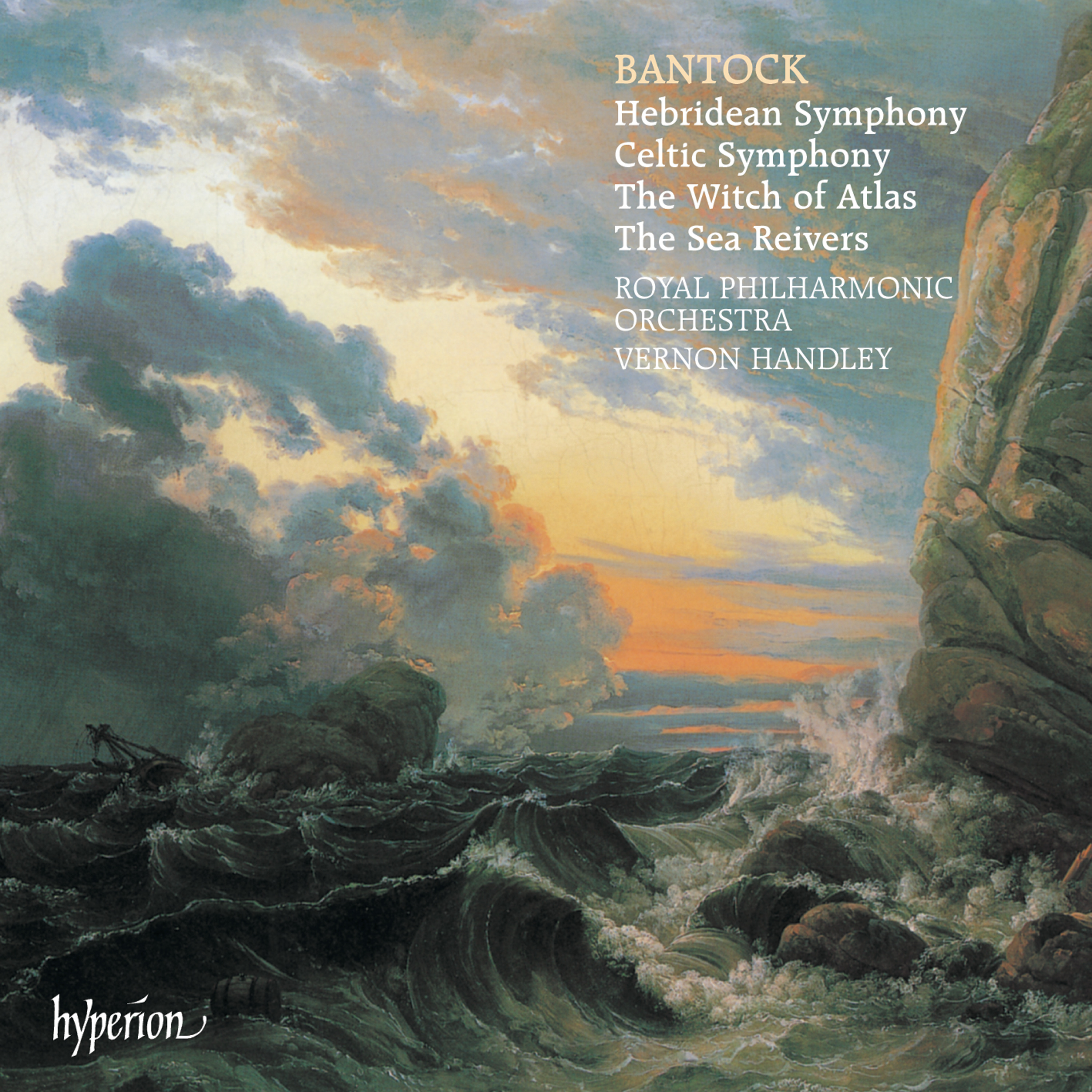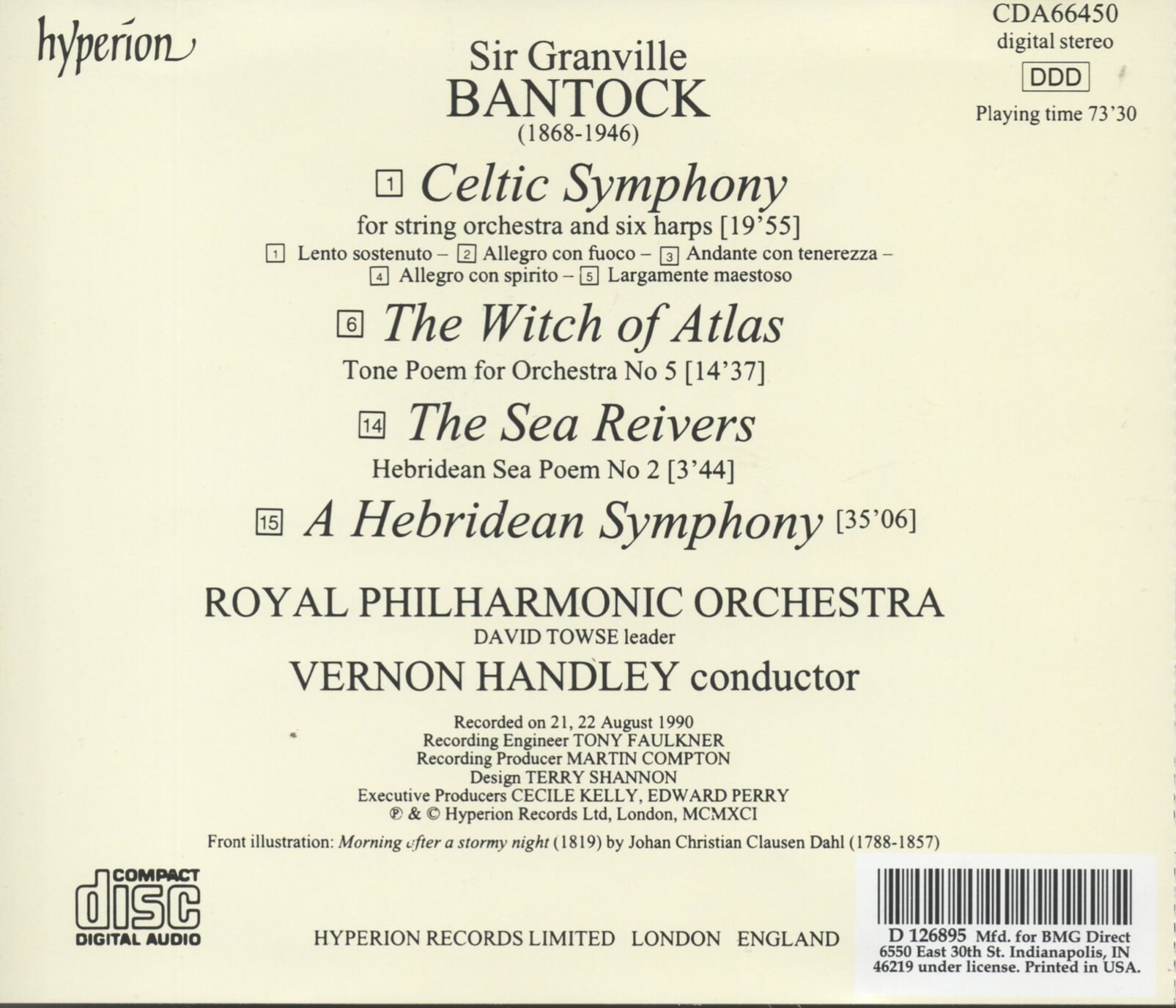The First of Bantock
... from 6 volumes on Hyperion.
This first volume of Bantock's orchestral music from Vernon Handley on Hyperion took the Classical-Music scene by storm. Just look at the cover, if you don't believe me!
If memory serves, which I will soon rectify, this first entry was the best of Bantock's music. He uses a modal harmonic landscape here, which isn't always present in his other works.
Otherwise, Sir Granville is a late-Romantic composer coming from the school of Liszt and Wagner, with hints of the French, such as Dukas. Late Romanticism isn't my favorite style, so any extra musical attributes which can set apart Bantock does well with me.
The 35-minute Hebridean Symphony is more of a problem. Like the Celtic Symphony, it comes in one long movement split into different sections, thankfully separately tracked by Hyperion. Bantock's music really sags in between the big moments though, especially towards the end of the second section through the fourth, meandering in spritzes and sprays. Here, the tunes are not as apparent, at least until the horns gloriously arrive in the fifth section, where the rest of the work shapes up with the help of an incessant trumpet and some string solos. The work ends in Bantock's favored misty calm which, to be frank, probably goes on for too long following section six.
Betwixt the two symphonies is the brief Sea Reivers, whose bass-drum hits ably visualize the cannon-fire and swashbuckling of the Hebridean pirates. The longer Witch of Atlas is more concerned with perfumed airs wafting about than anything particularly substantive. This is where I sense Bantock's French attributes at their strongest, even if they lay more on the Romantic side and tunes come and go pleasantly.
While the Hebridean Symphony has been covered previously to this Hyperion release, elsewhere recorded by Adrian Leaper on Marco Polo and Sir Adrian Boult on Intaglio, the rest of the items are rather rare, and hardly in as good of shape as with Handley and the Royal Philharmonic Orchestra. I sense the upper strings of the RPO are having an off day here, but their ensemble issues are hardly pervasive throughout. There is no mention of the recording location on the physical media, however, it sounds as if this was recorded in a rather reverberant church locale such as Guildford Cathedral, St. Jude's-on-the-Hill, or All Hallows. Also, turn up your volume, for this one was recorded at a low level.
Since I purchased this recording in the 90s, I believe from the BMG Record Club, I have listened to it on and off over the years. My feelings are generally positive, although from a critical stance, I have small issues. I have never let go of this music though, neither in my home, nor in my head; so that counts for a lot as well.
Works
Celtic Symphony (19.55)
The Witch of Atlas (14.37)
The Sea Reivers (3.44)
Hebridean Symphony (35.06)
Performers
Royal Philharmonic Orchestra
Vernon Handley, conductor
Label: Hyperion
Year: 1991
Total Timing: 73.30
In my head, this recording is a knockout. Plus, Handley gave us some Bantock music which hadn't been heard before, and still hasn't been recorded often, if at all.
Upon revisiting, there are small aspects which could be better, and Late Romanticism was never my particular brand of potato chips.
This recording does get a solid recommendation from me, though.




Comments
Post a Comment